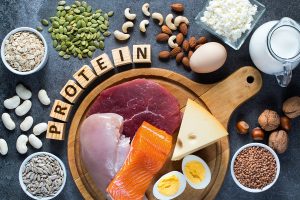 With cases of high blood pressure rising globally, many are looking for ways to reduce hypertension without the use of medication. A new study from China may have found an interesting way to lower the risk of developing the condition.
With cases of high blood pressure rising globally, many are looking for ways to reduce hypertension without the use of medication. A new study from China may have found an interesting way to lower the risk of developing the condition.
According to the new research, eating a balanced diet including protein from various sources may help adults lower the risk of developing high blood pressure. Previous studies have shown a strong association between poor diet quality and an increased risk of cardiovascular disease and death from cardiovascular disease.
Advertisement
This new study analyzed health information from nearly 12,200 adults living in China who were part of the China Health and Nutrition Study from 1997 to 2015. Participants had an average age of 41 years, and 47% were men.
Each participant was given a 24-hour dietary survey which contained a protein variety score based on the number of different sources of protein consumed. These proteins included whole grains, processed red meat, refined grains, unprocessed red meat, fish, poultry, egg, and legumes.
The analysis found that more than 35% of the participants developed new-onset high hypertension during follow-up. However, participants with the highest variety score for protein intake had a 66% lower risk of developing high blood pressure. People who ate the least amount of total protein than those who ate the most protein also had the highest risk for new-onset hypertension.
Study author Xiahui Qin, M.D. explained, “The heart health messages that consuming a balanced diet with proteins from various different sources, rather than focusing on a single source of dietary protein, may help to prevent the development of high blood pressure.”
Reduce the Risk
Advertisement
With nearly half of the U.S. population having a hypertension diagnosis, it is vital to find ways to help reduce the risk. High blood pressure is one of the leading contributors to cardiovascular disease. When left untreated, it can damage the circulatory system contributing to heart attack, stroke, and other health conditions.
Healthy Blood Pressure Support contains several ingredients that have been shown in human clinical studies to help support healthy blood pressure. This unique formula can also help to support healthy cholesterol levels and overall cardiovascular health.
By combining healthy protein sources and getting the proper vitamins and nutrients, research shows that the risk of high blood pressure can be reduced.
